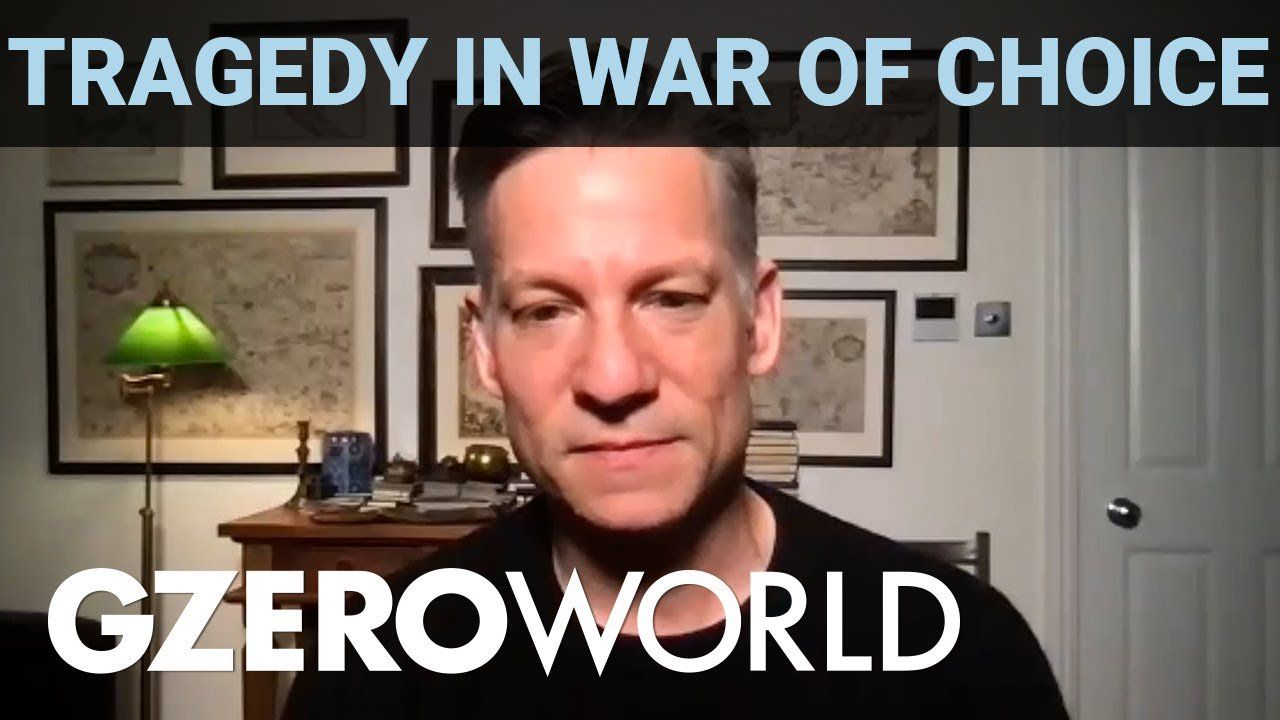GZERO World Clips
From Iraq to Ukraine: Reflections on "wars of choice"

Iraq/Ukraine: The problem with "wars of choice" | NBC News' Richard Engel | GZERO World

In their discussion on GZERO World, Ian Bremmer and NBC's chief foreign correspondent, Richard Engel, delve into the lessons that can be gleaned from the Iraq war in light of the ongoing conflict in Ukraine. Engel's key takeaway is to avoid “a war of choice,” as resistance from the invaded people can make the situation worse.
Drawing parallels with Iraq, he notes that “Ukraine is also a war of choice for Russia,” despite the perception of an existential crisis. Unlike Iraq, the situation in Ukraine has a clear narrative of one country trying to occupy another.
When asked about how the Iraqi people are doing 20 years after the war, Engel notes that there is no easy answer. While the people are now "freer" and the "economy is connected to the world," the country has experienced ongoing instability and a civil war. Although Iraq has made strides since the days of Saddam's regime, they are not yet fully functioning or embraced by the larger Middle East. Engel cautions, "I don't think they've landed yet."
Watch the GZERO World episode: Iraq War's legacy: Loss of lives, rise of ISIS, & political turmoil
Is China’s economic model reaching a breaking point? In GZERO’s 2026 Top Risks livestream, Cliff Kupchan, Chairman of Global Macro at Eurasia Group, highlights mounting pressures on the Chinese economy.
2026 is a tipping point year. The biggest source of global instability won’t be China, Russia, Iran, or the ~60 conflicts burning across the planet – the most since World War II. It will be the United States.
While surgeons remain fully in control, technological advances are expanding the use of surgical robots in operating rooms. As adoption accelerates, so do the expectations for patient outcomes and surgical care. Track medical innovation trends with Bank of America Institute.
Europe enters 2026 under mounting strain as it confronts external threats, internal political pressures, and a weakening relationship with the United States. In GZERO’s 2026 Top Risks livestream, Mujtaba Rahman, Managing Director for Europe at Eurasia Group, describes a continent that is “exhausted, fatigued, weak, and vulnerable.”